AI, Mobile Apps, and ASO - ASO Weekly
March 24th, 2023
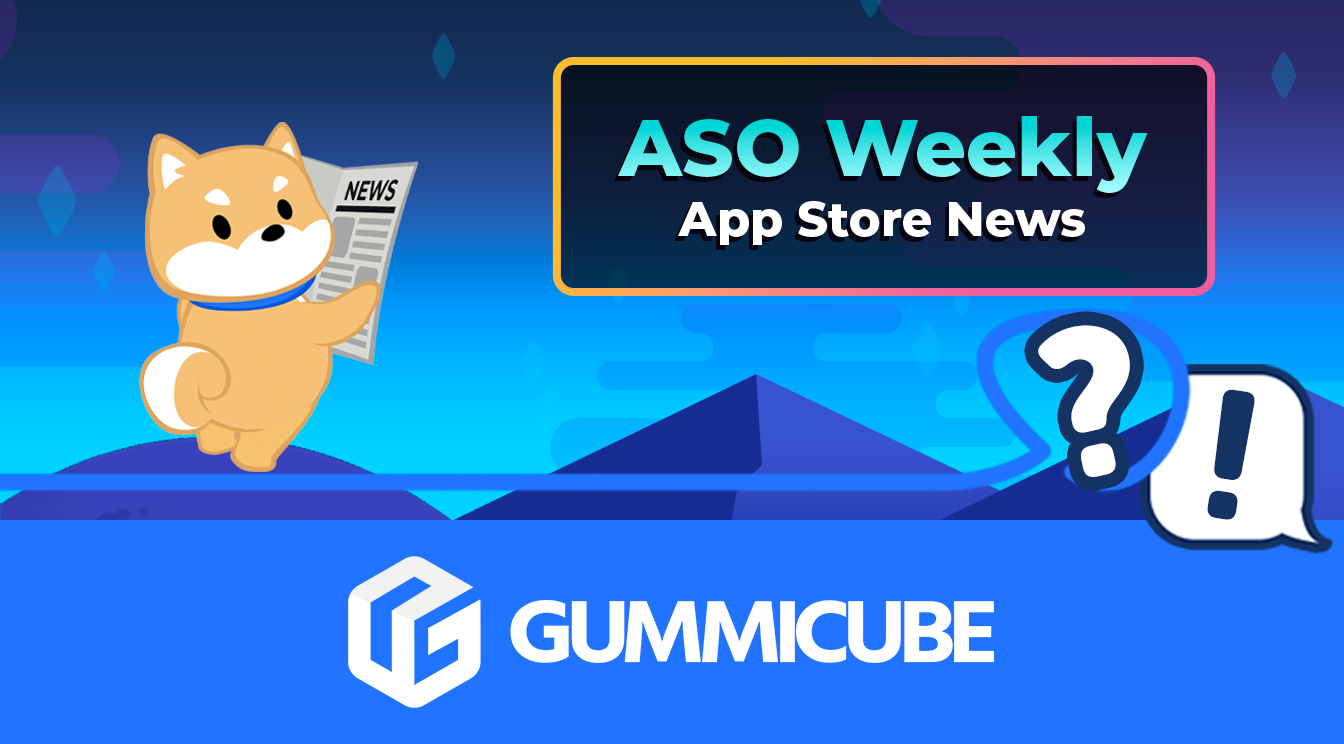

by Anh Nguyen
COO & Co-Founder at Gummicube, Inc
Is AI taking over your favorite mobile apps? In search of improving user experiences, developers across several industries have implemented the technology, seemingly dominating media attention in the last few weeks. Now, your everyday apps might just be powered by AI to help enhance your in-app experience and help you get more done.
This week’s ASO Weekly dives into the incorporation of AI into some of the most popular productivity apps, the risks associated with it, and how it can affect App Store Optimization.
Is AI The Future of Productivity Apps?
You might not know this, but you’ve probably been using some form of AI for quite some time. Siri, Google Assistant, and your favorite app’s chatbot? AI is behind that. Taking it a step further, largely thanks to rapid developments, we can see more advanced AI technology start to creep into different mobile apps.
Earlier in the year Microsoft implemented the widely popular ChatGPT tool to its Bing browser, a statement that AI is here to stay and providing potentially fresh grounds for competition in the search engine space. However, it doesn’t stop there. Your Microsoft productivity apps will also be leveraging AI to help you get things done thanks to Copilot. From generative text and data analysis to presentation planning and even app creation, Microsoft is making its bet on AI known.
And it’s not just Microsoft taking advantage of the power of AI. Perhaps its largest competitor is far from staying behind in the AI development race. Google also announced AI-supported tools to its Workspace apps, creating opportunities for users already enjoying the tech giant’s suite of services.
What about other apps?
But what about productivity apps and tools not created by the above giants? Is AI limited just to them or is there room for developers to grab market share? While these two companies might capture much of the market, niche AI tools can still thrive in the App Store and Play Store.
For example, in the App Store, two AI chatbot apps can be found among the top 5 apps in the Productivity category, with the same applying to the Play Store.
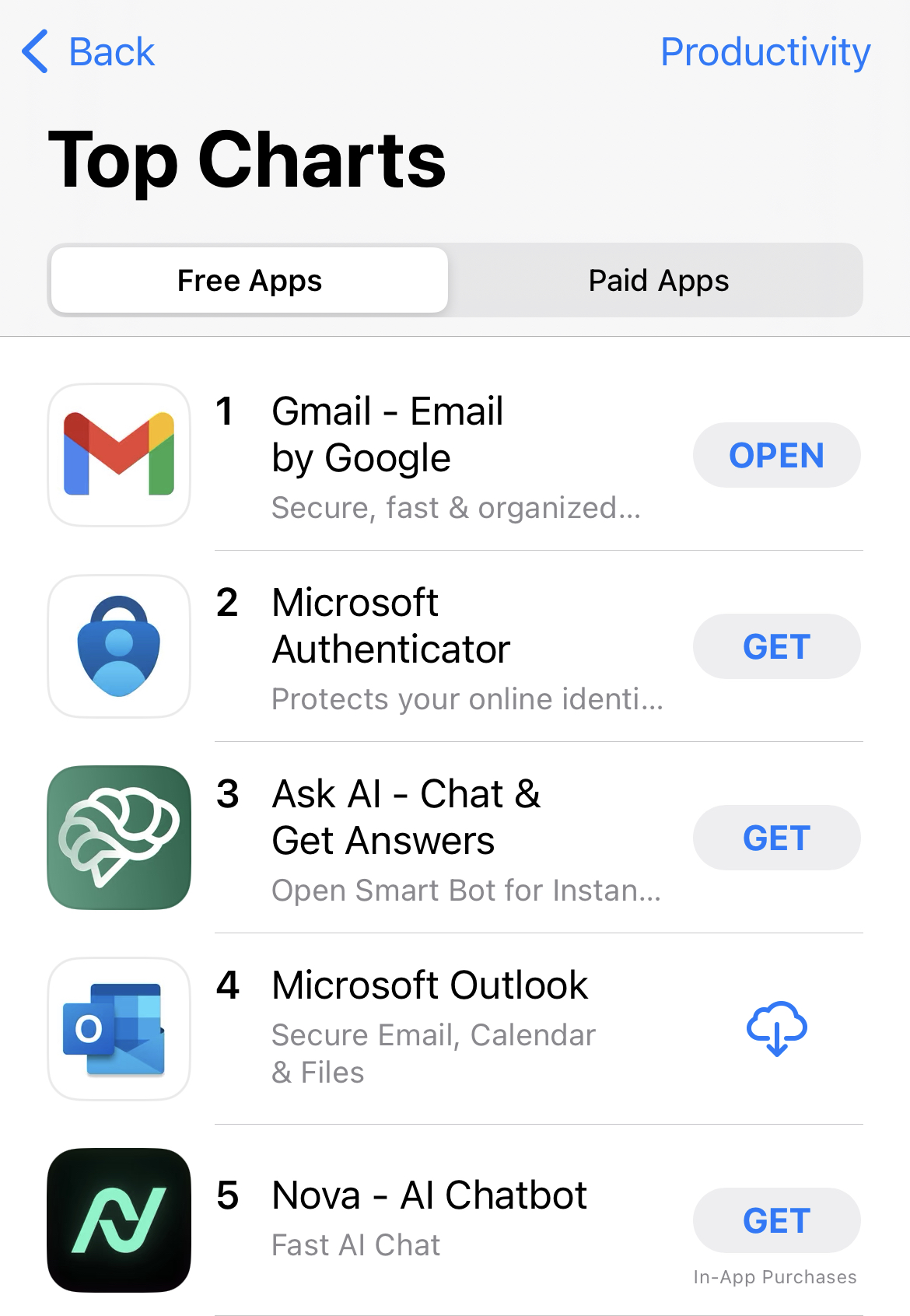
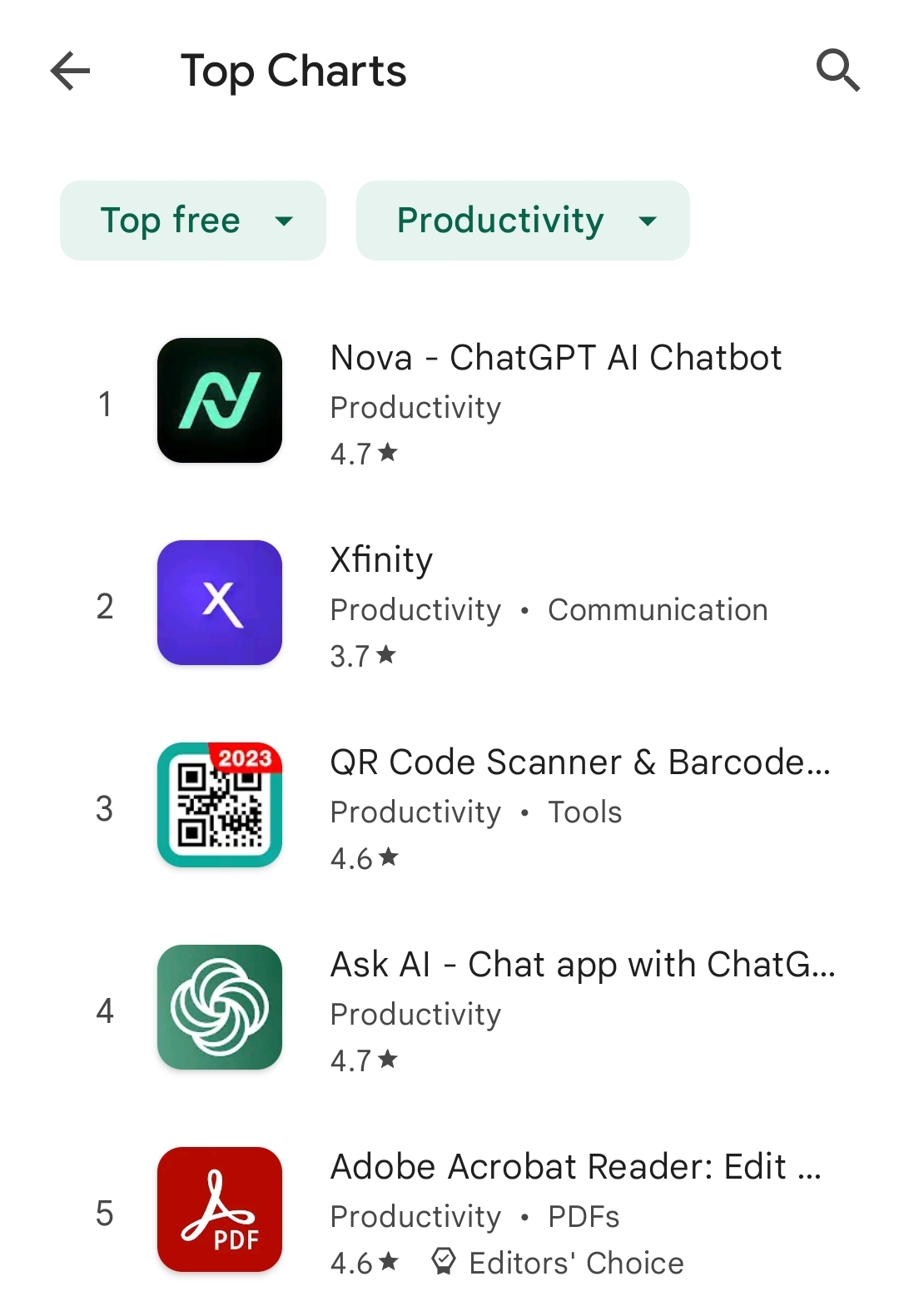
How AI Apps Can Leverage ASO
While brand awareness plays a role in a user’s download decision, implementing ASO best practices can help lesser-known developers compete regardless of the current landscape or market conditions. For example, the search results for “AI” or “chatbot” in the App Store or Play Store do not contain any apps from the aforementioned companies.
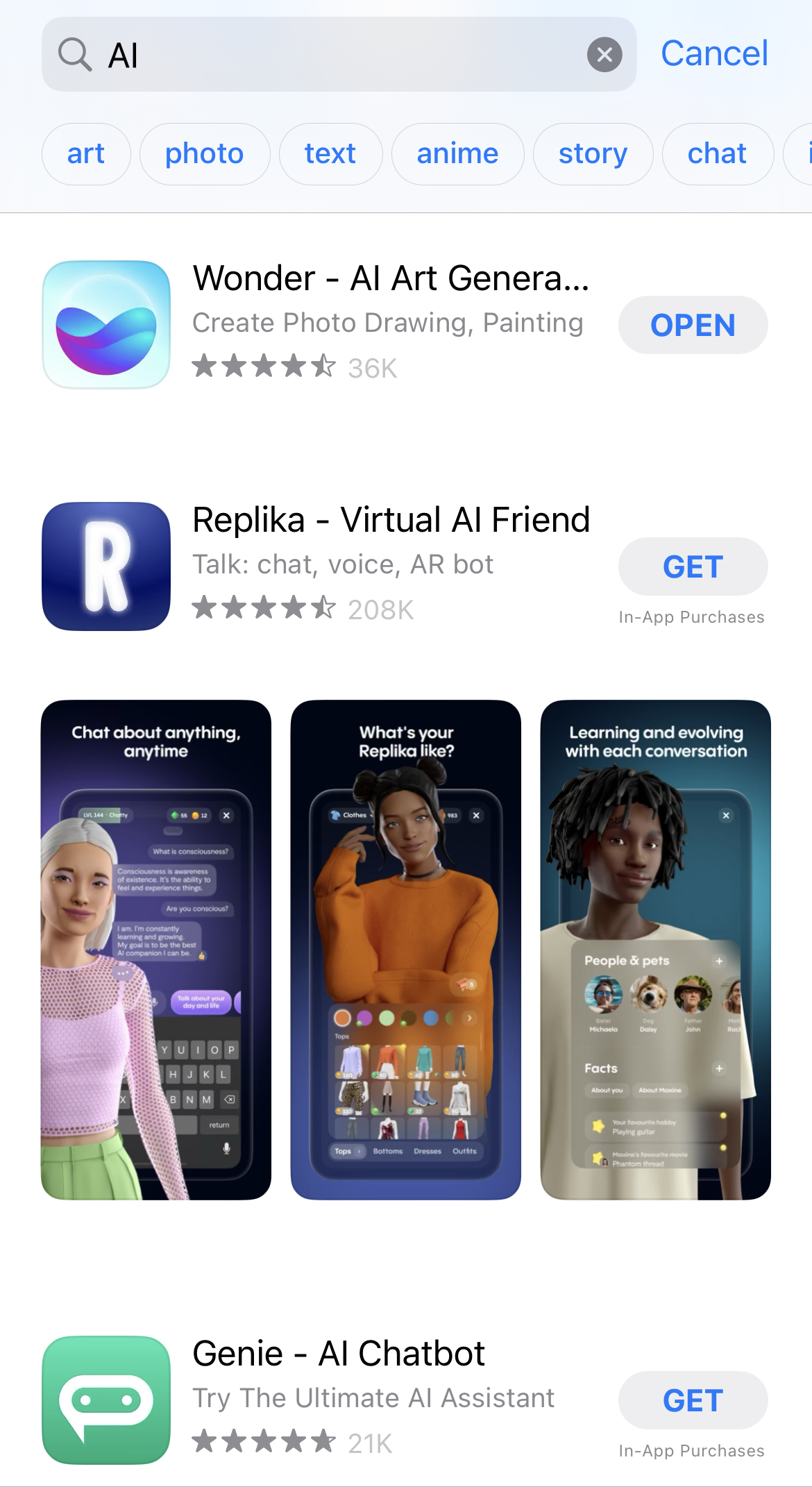
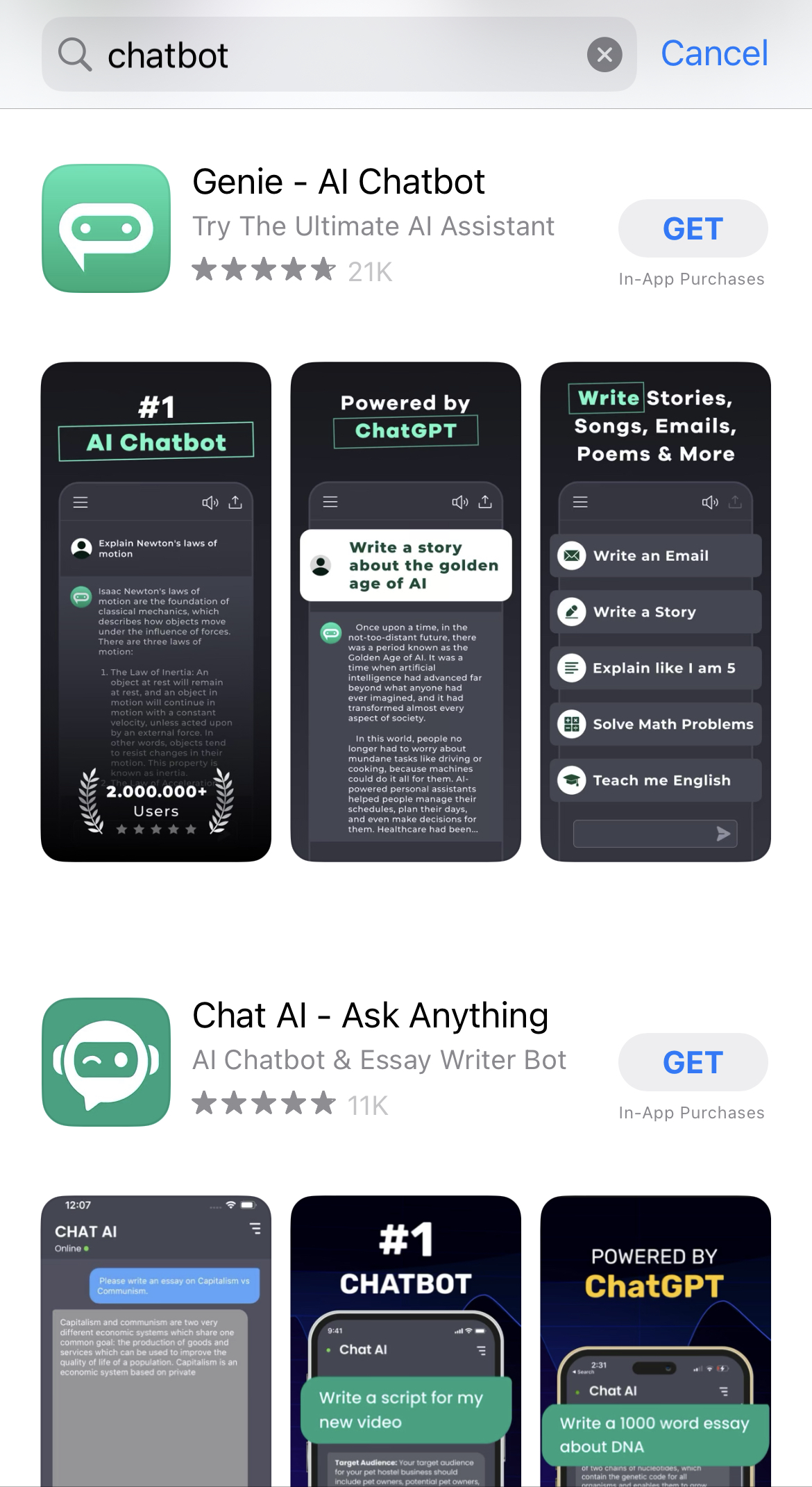
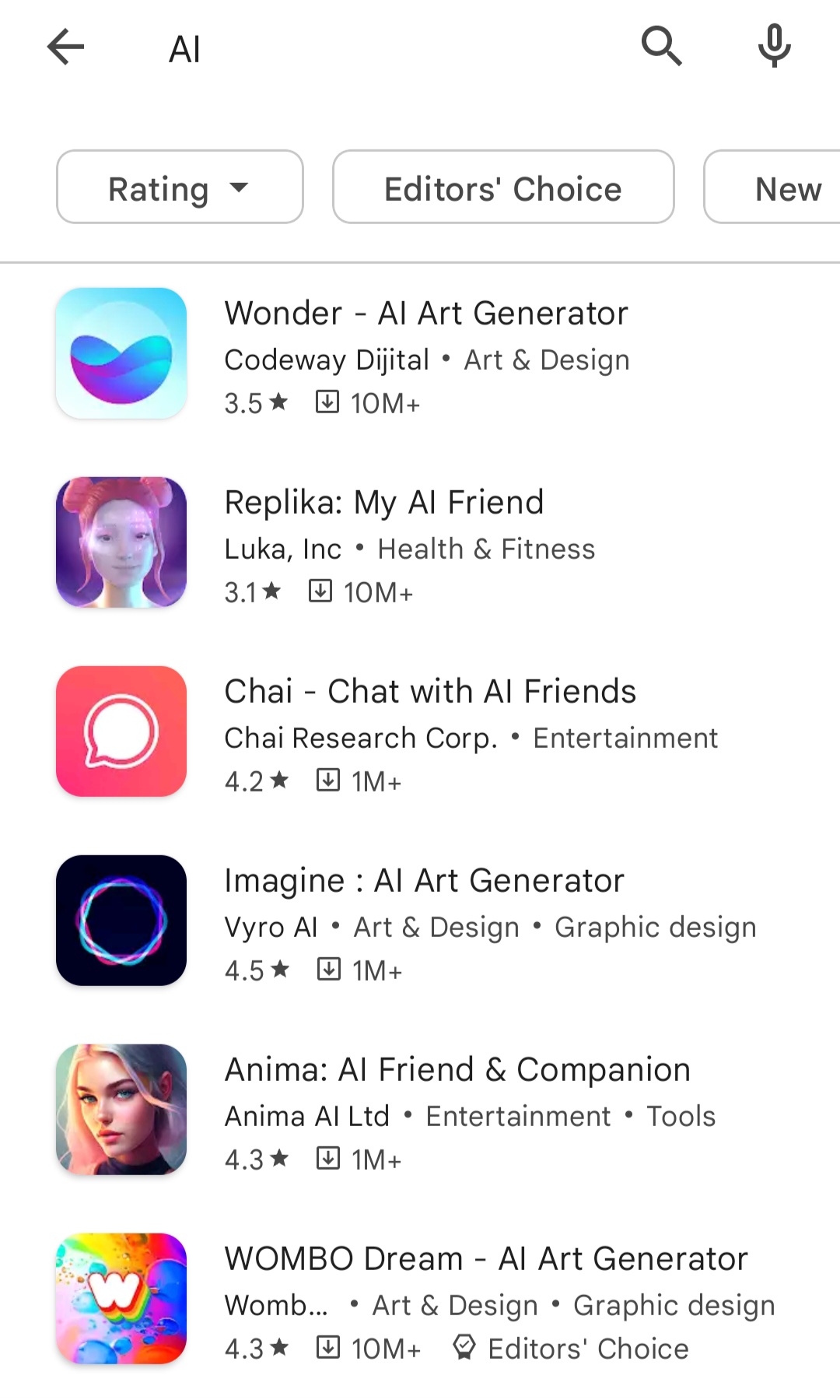
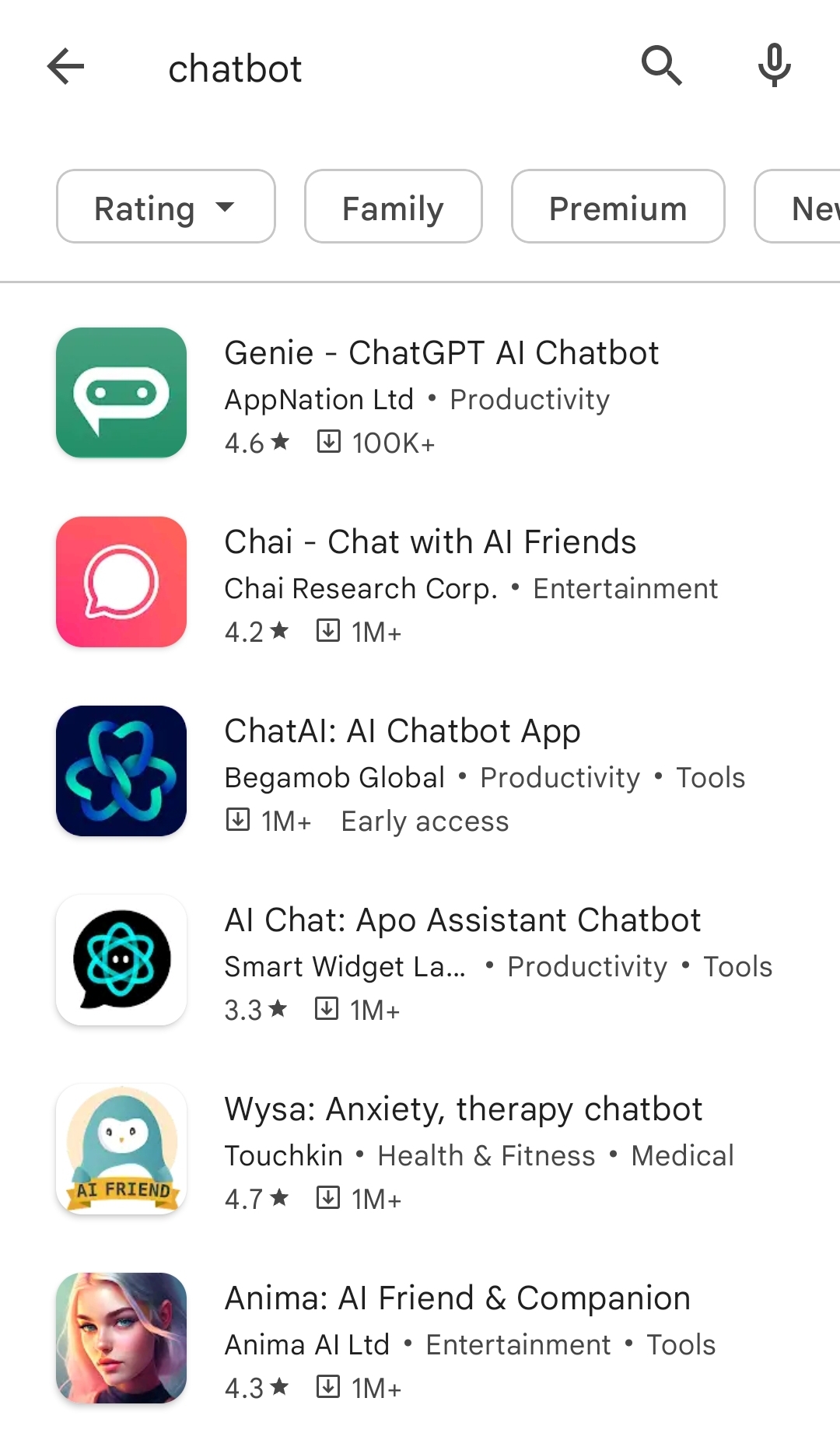
Each of the apps listed in the images incorporates keywords in their metadata fields. The implementation of key terms in the app title contributes to organic growth while also relating the app to the user’s search query. These keywords can also be found within the app subtitle, descriptions, and creatives, further contributing to potentially higher visibility and conversions.
The apps occupying the top spots of these search results not only understand the importance of the keywords themselves but selecting the right ones too. A thorough app competitive analysis can guide you into understanding what terms high-performing competitors are including and what users are searching for as well. You can further aid your keyword research with the right ASO tool or software that can identify the most relevant terms you should be incorporating.
It’s Not All Sunshine & Rainbows For AI Mobile Apps
Apps implementing AI technology into their services also have to be aware of the potential risks and consequent regulations that inevitably arise. Earlier this month Apple delayed the update of an email app powered by ChatGPT until it was updated to a 17+ rating due to it not having content filtering for text generated by the bot. After coming to a resolution, it begs the question, “Are there social and behavioral implications that we should consider?”
While an email app might not be the first thing that comes to mind when you think of a 17+ app, it does open the door for discussion about how the App Store approval process treats AI-powered apps that do not contain content relevant to this rating. Developers not only have to worry about the development and maintenance of their technology but if it will be even accepted upon launch.
An erroneous classification of one’s app can significantly limit the audience they’re trying to reach or even land them in a different demographic entirely, thanks to age or category restrictions.
AI App Compliance & ASO
Making sure an app falls in line with Apple’s community guidelines is essential to getting a product in front of users’ eyes and growing the business. However, making sure the ASO strategy follows the App Store’s guidelines also ensures the app isn’t rejected for faults in the metadata listing.
Certain terminology is restricted in the App Store to avoid legal conflict or to protect the overall user experience. To ensure an app is accepted, developers should do their best to clearly explain how their AI technology is represented. This can take the form of a disclaimer at the end of the description or clearly defining how AI behaves in relation to app features throughout the description.
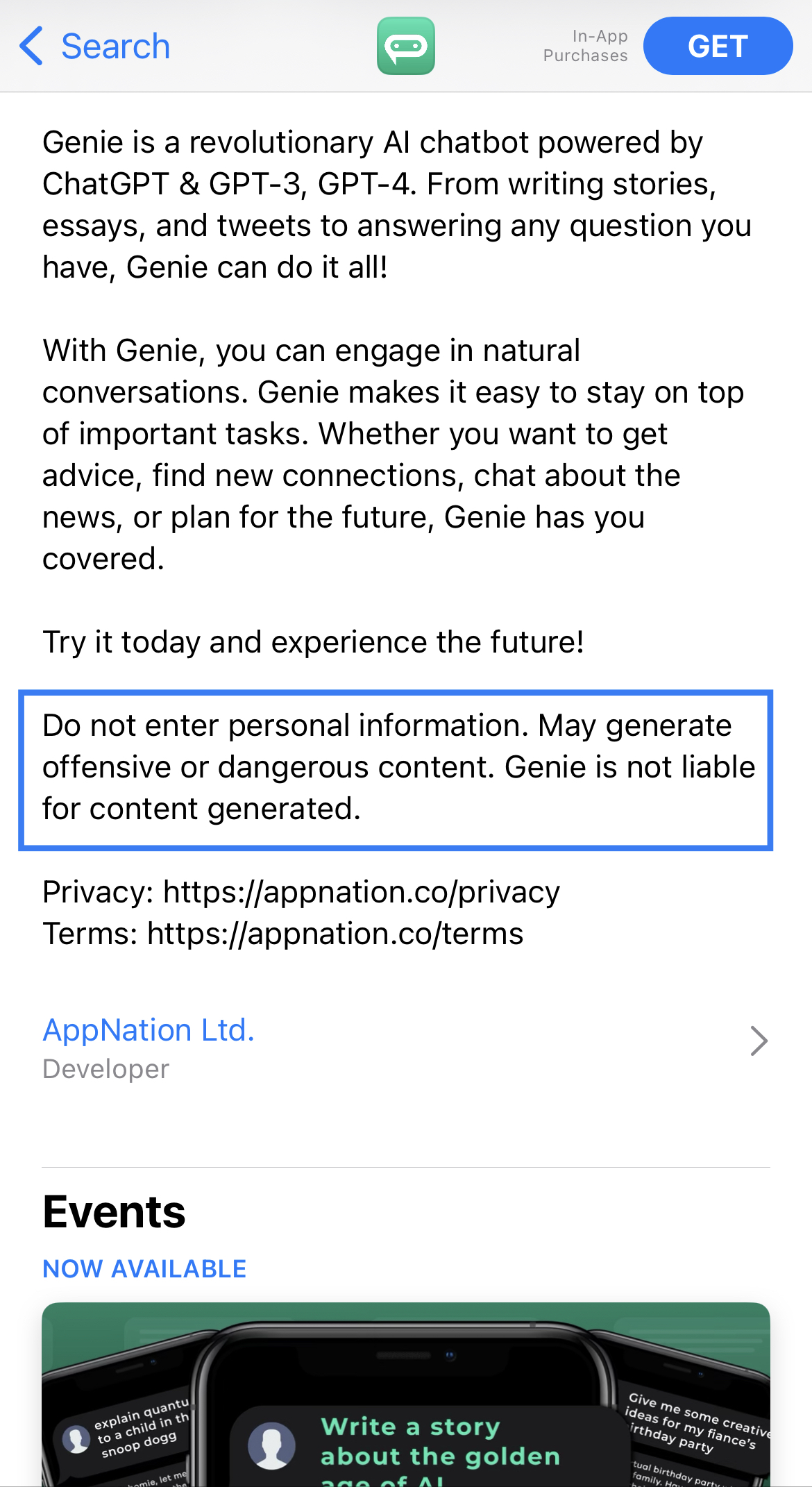
For example, the Genie AI chatbot clearly states the possible content the app can generate with a warning at the end of the description. By adding this caution, the developer clearly states the content output possibilities, minimizing the chance the app is rejected or mistakenly classified.
AI For Mobile Apps, Opportunity & Risk
For mobile developers using AI in their apps, the implications are still being evaluated as the technology advances and its implementation becomes more popular. The opportunity for improved in-app experiences also paves the way for differentiation in app store listings.
New features and value propositions can be highlighted through metadata copy and app screenshots as developers continuously update their services powered by AI. They can even leverage the power of the current market popularity of AI among users by mentioning the technology itself with the help of seasonal app marketing strategies.
However, it’s also important to consider the regulatory implications that accompany an AI-powered app. The App Store and Play Store each have their own set of rules developers should be aware of when developing their app, as well as their ASO strategy. Abiding by community guidelines ensures your app is accepted and avoids the headache of a lengthy approval process.
Need help publishing your AI app? Get in touch with Gummicube today!
Similar Articles

Posted on July 31st, 2024
Google continues to incorporate even more ways to increase discoverability across the Play Store. In this ASO News article we'll go over the newest updates, covering App Highlights, Curated Spaces, and all new personalized Game Recommendations

Posted on July 24th, 2024
Is your app safe? Google announced a wave of deletions coming to the Play Store, targeting apps they deem to provide a low-quality app experience. Make sure you know what that entails and how you can avoid being affected by the new policy updates.
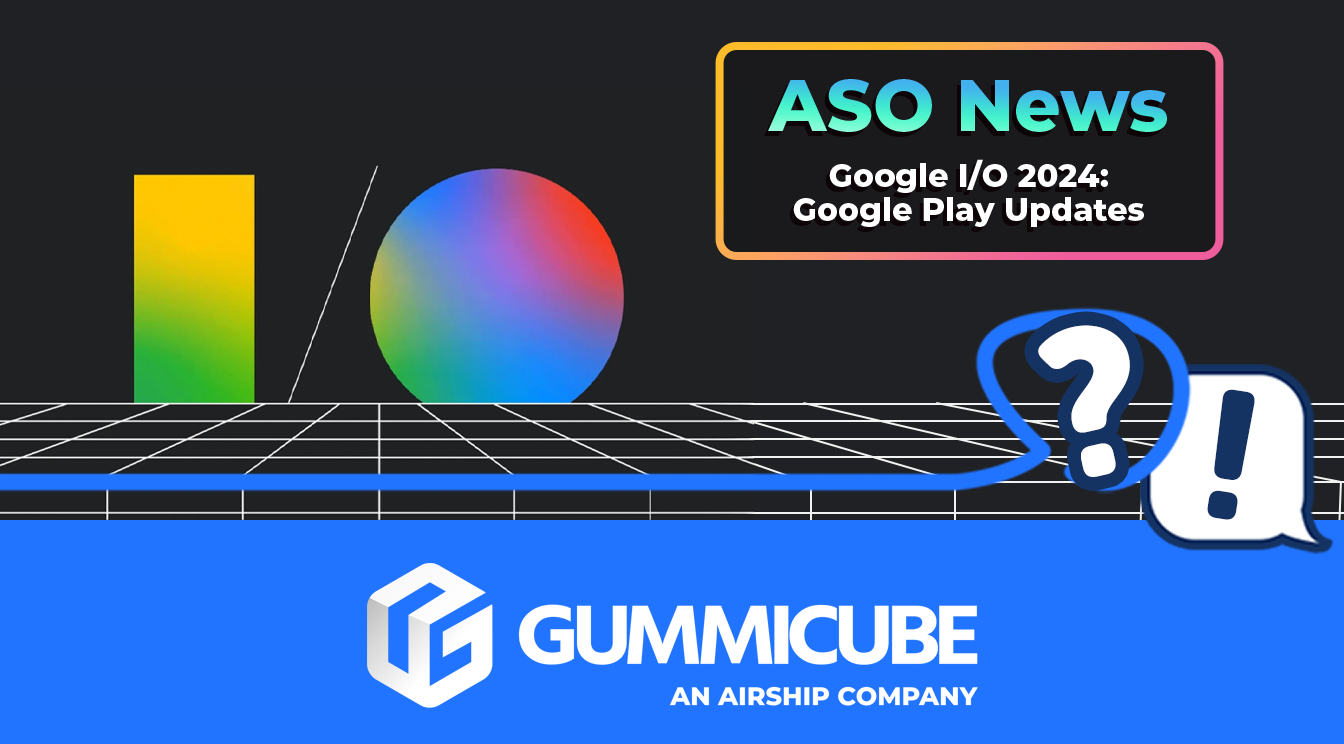
Posted on May 16th, 2024
The new Google Play has arrived. With Google I/O 24 come announcements to changes to the Play Store layout, native tools, and monetization. Learn what to expect from the latest changes and prepare your app marketing strategy.












